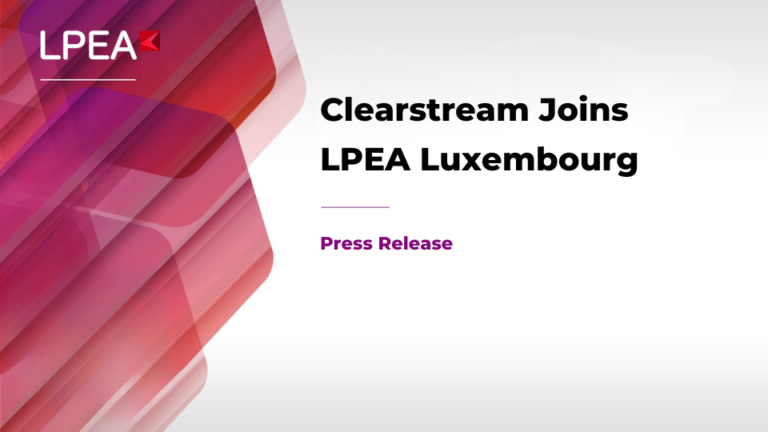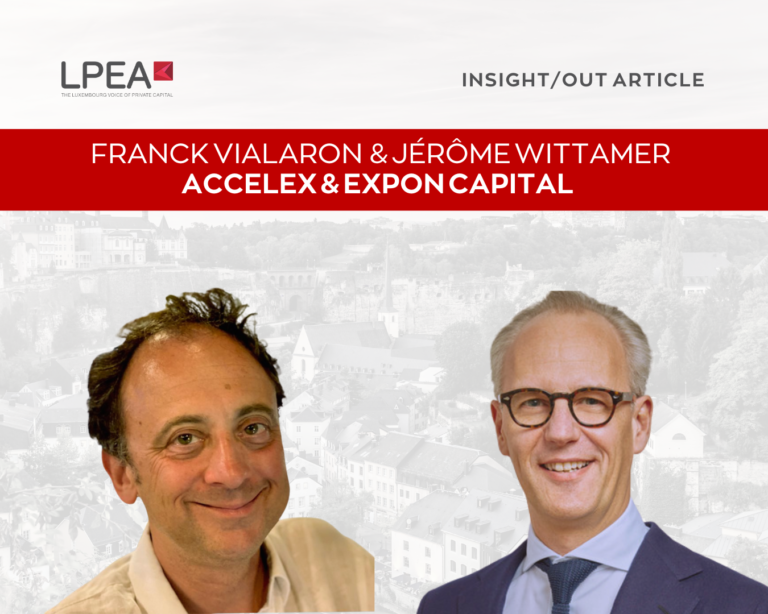By Martine Kerschenmeyer, LPEA Board Member as published in Insight Out #27
Introduction
Historically, General Partners (GPs) and asset management firms ran their European Investor Relations operations out of London, including the marketing and distribution of funds to European Economic Area investors. However, with the advent of Brexit, the landscape shifted dramatically. Passporting rights under AIFMD and MiFID were lost to the UK. Now, any marketing or even pre-marketing must occur from an EU-based country. Many GPs tried to anticipate the changes, even before they knew their full scope. Since Luxembourg was already at the forefront of services to the fund industry, it was well positioned to start promoting itself as the European centre for IR and fund distribution as the industry is looking for solutions.
The Evolution of Investor Relations
The Investor Relations role really started evolving in the early 2000s. Back then, only a few GPs had dedicated IR/fundraising teams. Mostly, there was just one person wearing multiple hats – answering investor questions, organizing roadshows, crafting pitchbooks etc. Deal Teams, meanwhile, spent a good part of their time travelling around the world, building and maintaining investor relationships. The ‘IR community’ was in its infancy. It wasn’t an official job with a job description and a clear career path.
Then the global financial crisis struck, acting as a wake-up call. GPs recognized the inefficiency in investment teams spending excessive time on the road meeting investors multiple times a year. While engagement with clients remains vital, it was important that Deal Teams refocused on sourcing deals and working on their existing portfolio companies. At the same time, the realisation that, without capital, investments are impossible, really hit home. This slowly led to a more structured approach to IR, underscoring its importance.
What does the IR function entail?
In essence, IR is about positioning a firm to successfully raise capital regardless of the fundraising environment. This involves liaising with both internal and external stakeholders, creating robust fundraising processes, and maintaining deep, lasting relationships with investors. A crucial aspect is preparing and sharing accurate data and information about the firm’s set up, programs, investments, track record, team and culture. Regular reporting and answering ad-hoc queries are part of the role. Many companies are still only beginning to establish these roles, often leaving newcomers unsure exactly where they fit in, given each organisation operates differently.
Nowadays, IR divides roughly into two functions: client-facing investor relations/fundraising and project management/client servicing. The set-up varies; larger firms might segment these functions more distinctly. Having the right set up according to your size and offering plays a key role in providing a best in class service to investors, which should lead to a successful fundraising process.
How difficult is it to recruit these profiles?
As demand has grown, so too have challenges, due largely to a narrow talent pool, despite its growth over recent years. Speaking to people at a recent event attended by fellow professionals, I noticed that younger analysts today seemed more likely to choose the Investor Relations career path proactively, unlike previous generations who mostly stumbled into IR accidentally. Private Equity is also advertised much more on school campuses, so there is increased awareness about the sector and the career possibilities it offers amongst younger generations.
Ingredients for success in IR
Successful Private Equity fundraising requires a combination of technical knowledge and soft skills. The ability to convey complex ideas in a compelling way and with confidence is paramount. so a deep understanding of Private Equity is essential. Then there are the ‘people skills’ – building relationships, networking, understanding clients needs by listening not just to what they say but also what they don’t say. Building a relationship based on trust is key. Remember, in this field, relationships might even outlast some marriages, so integrity is critical. Given the often competitive and challenging nature of fundraising, traits like resilience, energy, and persistence are also crucial for success.
The evolving landscape of Private Equity also demands adaptability. Firms must adjust to shifts in market conditions, investor tastes, and regulations. Those in fundraising, with their fingers constantly on the pulse, can guide their firms in staying relevant to investors. Take ESG and factors such as carbon footprint, alongside Diversity, Equity & Inclusion (DE&I). For firms, showcasing a genuine commitment to these principles isn’t just a formality; it’s increasingly becoming a deal-breaker in due diligence processes by investors. Finally, IR is a collaborative endeavor. The IR professional is the glue between the various internal and external stakeholders.
Does Luxembourg Fit the Bill?
As post-Brexit implications are becoming clearer, several GPs have been exploring a number of solutions from secondments, delegating distribution to redefining and re-attributing roles internally. Ultimately, the most viable solution might be hiring dedicated individuals for these roles and bringing them in-house.
Can Luxembourg provide or attract such talent? The country is making strides. Their move to ease job market access for accompanying spouses that are third-country nationals could be a game changer. It was a major factor when people evaluated and turned down job offers in Luxembourg. Increasing the number of International and English speaking local schools also adds to the attractiveness. Yet, challenges like the unaffordable housing market remain and infrastructure (roads, traffic) need attention.
And as business conversations globally and locally lean more towards English, a strategy focusing on English-speaking professionals, while also valuing additional European languages, would be savvy. Luxembourg could have a clear edge here.
Could Local Upskilling Be the Solution?
A frequent lament from recruiters and companies is the shortage of talent with the right skillset. This perspective may indicate a flawed hiring paradigm. While experience is invaluable, the intrinsic qualities of a candidate – their motivation, adaptability, and soft skills – are often more crucial. With digitalisation and artificial intelligence transforming the way firms operate, human-centric skills become even more critical. As a native Luxembourger working in IR for 20 years, mainly in London, I do think that Luxembourg has a clear edge with its multi-lingual local population. The key is to make the private sector attractive enough so local people take an interest while also attracting talent from abroad.
In summary, Luxembourg is well-positioned to become a significant hub for IR and fund distribution in the post-Brexit European landscape. Success hinges on innovative thinking in talent acquisition and enhancing local appeal for global professionals.




